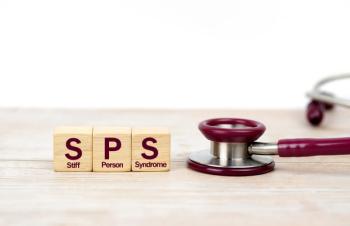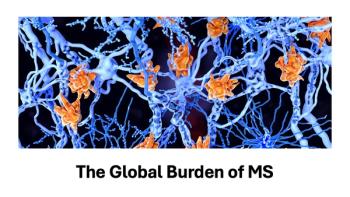
Study Evaluates Link Between Stress and Autoimmune Disease
A new study has surprising findings about traumatic or stressful life events and the link to developing an autoimmune disease.
Crohn’s disease, celiac disease, and rheumatoid arthritis are just a few of the autoimmune disorders where the immune system mistakenly attacks the body, incorrectly sensing foreign invaders. And while the causes remain largely unknown, one idea theorizes that there may be a connection between stressors and these autoimmune disorders.
Past studies have identified pathways through which stressful events contribute to deterioration in human health. That’s why earlier this year, Huan Song, MD, PhD, post-doc researcher at the Karolinska Institutet in Stockholm, Sweden, led a team of researchers from the University of Iceland to examine whether psychiatric reactions to life stressors result in the physical dysfunction of the immune system.
“With strong animal models and human data supporting a role of stress in immune dysregulation, the hypothesis linking mental distress with autoimmune diseases is indeed plausible,” she says. “However, the evidence is as yet limited to clinical observations and a few larger observational studies on U.S. veterans, most of them on men only, and some of which have cross-sectional designs and various other methodological shortcomings.”
The researchers examined the medical records of 100,000 people with stress-related psychiatric disorders between 1981 and 2013 in Sweden and compared them to 120,000 of their siblings and nearly 1.1 million unrelated people who had no stress-related disorders.
Read:
“To our knowledge, this is the first study to address severe stress reactions, representing as clinically confirmed posttraumatic stress disorder, acute stress reaction, adjustment disorder, and other stress reactions, and their associations with 41 distinct autoimmune diseases in both men and women using both population- and sibling-based comparisons,” Song says.
The
“After careful control of confounders, comorbidities, and surveillance bias, our results showed that individuals who developed stress-related disorders after traumatic or other stressful events were at elevated risk of developing autoimmune diseases,” Song says. “Additionally, our findings include an intriguing and novel observation suggesting that persistent use of serotonin (SSRI) medications after diagnosis of posttraumatic stress disorder may reduce the risk of autoimmune disease.”
Additionally, those taking antidepressant medications that block SSRIs were associated with a decreased risk of autoimmune disease.
The efficiency of SSRI treatment in reducing core symptoms of PTSD, and their downstream pathophysiologic sequel, has been previously been confirmed. The study’s results indicate that SSRI medications may break the vicious stress-autoimmunity pathway. Therefore, the findings show timely and effective pharmaceutical interventions for patients with severe stress-related disorder might be beneficial, in terms of preventing autoimmune diseases among these patients.
“In the terms of epidemiology and etiology, this observation supports a causal link between stress-related disorder and autoimmune disease, by showing the reduced severity of the exposure ensue attenuated risk of having the outcome,” Song says.
The results show statistically significant associations between stress-related disorders and 18 individual autoimmune diseases, with varied magnitude for individual autoimmune diseases. The highest HRs were found for Addison disease, autoimmune thyroid disease, and systemic lupus erythematosus.
“Previous animal models and human data supports the theory ‘psychological stress can modulate immune system,’ probably through disruption of the hypothalamic-pituitary-adrenal (HPA) axis and autonomic nervous system,” Song says. “The activated autonomic nervous system might induce the dysregulation of immune function and disinhibition of inflammatory response via the inflammatory reflex.”
Moreover, patients with PTSD have been reported to have excessively low cortisol levels, which can consequently lead to amplified production of pro-inflammatory cytokines with accelerated immune cell aging, and over-activated immune system.
“However, as an observational study, although we demonstrated a robust association between stress-related disorder and autoimmune diseases, we have limited capability to explore potential causal biologic mechanisms linking stress-related disorders to autoimmune diseases,” she says. “Further studies are needed to understand the underlying mechanism.”
Still, she says, individuals suffering from severe emotional reactions after trauma or other life stressors should definitely seek treatment due to the risk of chronicity of these symptoms and thereby further health decline, e.g. the increased risk of autoimmune disease.
“There are now several treatments, both medications and cognitive behavioral approaches, with documented effectiveness of core symptoms of stress-related disorders and their comorbidities,” she says.
Keith Loria is an award-winning journalist who has been writing for major newspapers and magazines for close to 20 years, on topics as diverse as sports, business, and healthcare.
Newsletter
Get the latest industry news, event updates, and more from Managed healthcare Executive.























